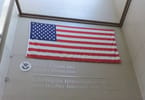This discussion happens during times of crisis, of greed or when looking for a way out. In Hawaii gambling is banned and for dcades politicians and citizens don’t want to have any gambling in the Aloha State, and it turned Las Vegas into the favorite holiday destination for Hawaiians.
Gambling can be good, and is also a game changer for any destination allowing it. Seychelles as an independent country, of course, has advantages in regulating such an industry and make sure a good portion of the profits stay in the country. For sure lobbyist from major gambling would love to see gambling to be offered on an exotic island in the Indian Ocean.
Former Seychelles tourism minister Alain St.Ange, who is now a tourism consultant sees an opportunity for his country and wrote in his weekly report:
“Seychelles is currently missing out on enormous revenue that can be obtained by globally established casinos. These casinos may bring in hoards of rich gamblers to our shores by providing flights, transport, accommodation in world-class resorts, and entertainment such as boat trips and island visits. Furthermore, these high rollers would spend large amounts of money on shopping and dining during their stay, further adding economic benefit. Also, as the saying goes ‘the odds are always in favour of the casino’. Not to discourage gambling, but statistics show that there is a greater chance of the money staying with the house, rather than leaving the house. With ‘the house’ being Seychelles in this instance, further economic benefit is established.
“Countries like Macau and Monaco are known for their luxurious casinos, and almost exclusively economically built through the courting of high roller gamblers, also known as junket players. Junket players originated in the US many years ago in a ploy to build up the now famous city of Las Vegas. Casino operators in Las Vegas would hire ‘junketeers’ to fill a plane with qualified gamblers. These players would be treated to free airfares, hotel accommodations, meals and free shows in exchange for their commitment to gamble a specific number of hours per day at an explicit average bet size. The casinos assumed that the players would lose than what was invested to bring them to the tables, and most of the time they were right. Sooner or later, the junket player concept had become a global enterprise.
“These players have expressed that they would love to be brought to the Seychelles to gamble and at the same time to enjoy the exotic tropical delights of our country, a combination they can rarely find elsewhere. Unfortunately current legislation prohibits local casinos from inviting them. ”
There is of course understandable concern about the possibility of money laundering with junket players and the lack of control if the financial transactions take place outside the Seychelles. In this context, it is very important to note that if these players are brought to Seychelles that authorities will need to regulate all the player cash transactions for a junket, and that these transactions only take place in the casino based in Seychelles. Legislation about junkets and their control also needs to be put in place beforehand.
The Seychelles tourism industry is presently missing a huge opportunity in bringing these high roller players to our country. We already have in place the excellent infrastructure with the hotels and resorts where any of these players would feel at home.























